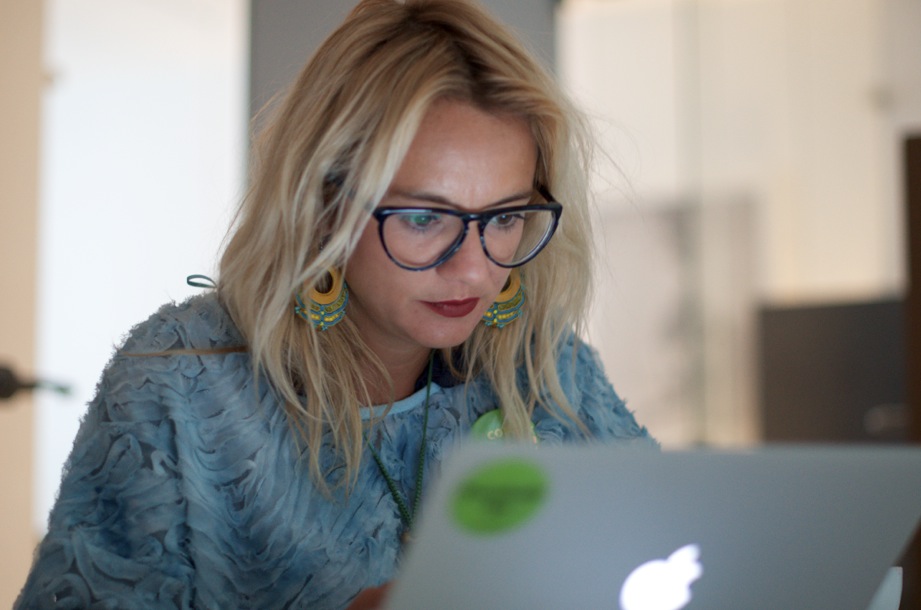The media and brands have created one segment of people for themselves: ‘living in covid’. But it’s far from the truth that everyone has the same needs or fears. Just like before and after Covid: PEOPLE ARE
Radical, sudden changes in the way we function socially and professionally, immersion in a sense of uncertainty, additional unexpected duties for parents – all this has caused quite a lot of mental turbulence.
What studies have shown us is that, as in any situation, there is no single response to pandemic stress. People react differently and there is no one-size-fits-all solution.
There are several factors to consider when trying to understand how new restrictions (social distancing) and job changes affect people:

The level of extroversion – contrary to popular intuition and memes – the pandemic was only paradise for introverts at the beginning, because introverts are not people who don’t like people – they just like them less. But just like all human beings, introverts are built for social relationships. Because introverts are less able to “acquire” social contacts and maintain them – it is a hard time for them – because they cannot really find their way, in the fact that instead of limiting contacts – they now had to strive for them.
Do they have a family and other support – the pandemic is especially stressful for singles. They were not only cut off from contacts, but sometimes were forgotten a bit because, for example, their friends with children had to deal with a new excess of duties and did not have time for additional contacts. People who have family support at this time do much better.
Financial situation – Money doesn’t matter much until you find yourself in a position where you might not be able to get it. People who have no savings and whose incomes have been sharply cut or lowered, experience much more stress than those who do not have to worry about it. No hope that something will improve or change, or waiting for a moment to worsen – massively affects the level of anxiety.
Do they have children – the beginning of a pandemic was often a gift for busy parents – it was a bit like a vacation – so much time together. But the holidays are over when remote learning begins, and reconciling your work with being a home teacher causes enormous cognitive and emotional strain.
Type of work – the pandemic cut us off from what many considered unnecessary – daily contacts with others. It seemed that technology could make up for everything, but… as people found out – nothing would make up for a conversation over coffee or in the corridor. Additionally, people were not prepared, accustomed and taught to this form of work, so often instead of working less, they work much more. They work from home, so they have no transition between home and work, they have lost their private zone – work and home have been mixed. Many feel that their private time has been completely taken away from them.
There are, of course, more factors that play a role in how a person responds to a pandemic, but these are the most important to consider when we want to help ourselves or others.
What is important in this situation:
Self-awareness – we need to know what we are missing to try to make up for it. It is important to realize that we have to look for a SUBSTITUTE for what we lack, and not be unhappy with not being able to have what we are used to. Yes – events and conferences, this is not something that we can still afford, but … if we know what we are missing – then we know what to look for in the new reality. Scott Galloway, for example, prepared his MBA online, which he designed, so that people acquire not only knowledge, but also the community – because he knows it is IMPORTANT for people – to be part of the community.
Routine – in times of remote work, without the possibility of meeting others – the times of the day blend together, just like the days of the week. It is important to establish a certain routine (or rituals – if you like) – that will set the boundaries – what is done when. Thanks to self-awareness, we also know what is important to us and we should PLAN when we do it – it should be part of our daily routine.
Taking care of yourself – even people who have the least time for themselves, and maybe especially those who have to look after their children and/or parents – need to find a space to regenerate. Because you can push hard for a while – but eventually we will fall. And we won’t be able to help anyone anymore – so it’s important to take care of yourself. Establishing rules at work – the new reality requires new rules and requires that they be established, named, and approved by those involved.
Getting in touch with others should be a priority – just because you can’t meet someone in person doesn’t mean you can’t meet them. Humans are herd creatures more or less, but everyone needs social interaction, so it’s important to make this your priority and ALWAYS find time to talk. For some, this may be a new situation because they never felt the need and satisfied their “needs” for people in small social interactions, but now that they have run out – it’s important to find new ways to “be” with people. Talking about your needs and emotions is an essential element of coping with stress. Of course, it does not have to be a conversation about emotions – the mere fact of a conversation about any topic – is already a soothing factor.
Concentrate on what you can control – panic, like negative thinking, can become a habit if we do not put in the discipline to clean our mind of unnecessary thoughts. We have no influence on how long the pandemic lasts and how long we will have to maintain social distancing or home schooling. But we really do influence our reaction. We have an influence on the organization of this situation. We have an influence on whether we let our perfectionism tire us and our family – or let it go a bit because … it’s harder than usual and it’s hard to keep everything to the same standards as we had before.
Give up the kids – for kids, especially teenagers and those who were going to go to college – this is a very difficult situation. Now that you have more control over how and what they learn – you have to let go of them a little more than before because context matters. If they are exhausted or fed up with something – let them “skip school” and don’t make problems because of it – it will be good for you and them.
Our research has shown that the most common way to cope with difficulties during a pandemic is … doing nothing. Or complaining. Or waiting. Or denying anything bad is happening. These are not the most effective self-care strategies.
Taking care of yourself shouldn’t be just an option, it should be a duty. Both from the personal and professional level, we should support each other, so great applause for companies that provide psychological care to their employees or take care of their new needs and help them survive the situation with a sudden new profession (teacher), overburdening themselves with pleasure or taking care of your physical condition.
Man is one – so if he feels good, he functions well in all areas. If there is a problem in one area, others also do worse. That is why companies that care and do not squeeze people like a lemon, they set new rules and stick to certain boundaries that provide support – these are companies that will attract the most effective, but also the most loyal employees.




